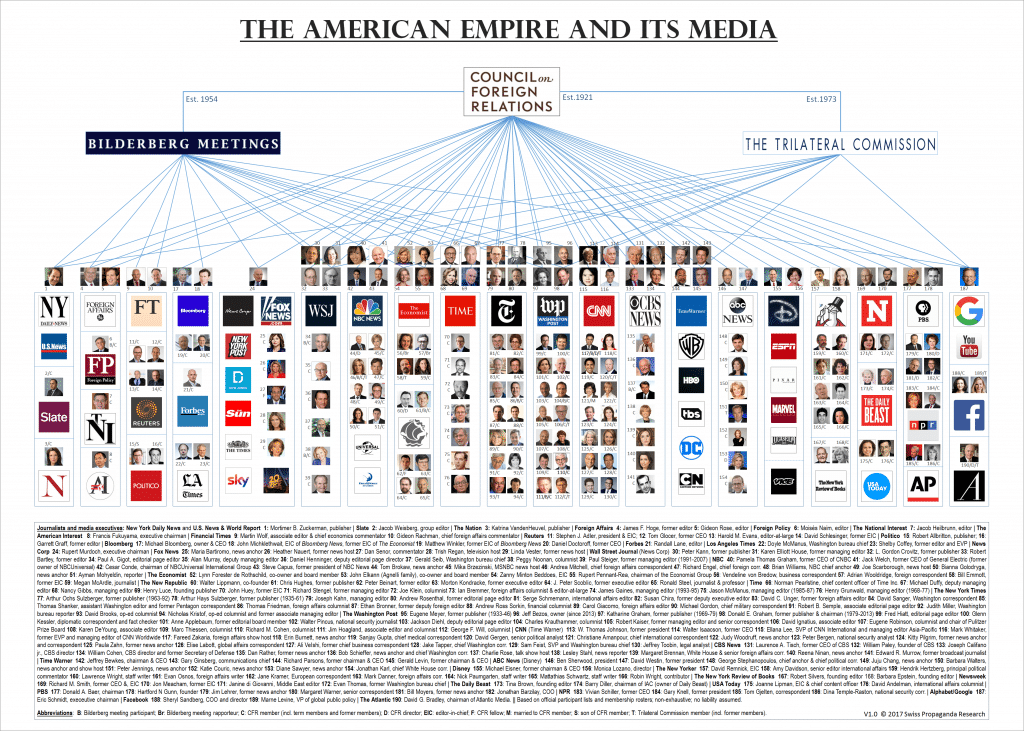mronline | Largely unbeknownst to the general public, many media executives and top journalists of almost all major U.S. news outlets, political and business magazines, public broadcasters and press agencies have long been members of the Council on Foreign Relations (CFR).
Established in 1921 as a private, bipartisan organization to “awaken America to its worldwide responsibilities”, the CFR and its close to 5000 elite members have for decades shaped U.S. foreign policy and public discourse about it. As one Council member famously explained, the goal has indeed been to establish an “empire”, albeit a “benevolent” one.
Based on official membership rosters, the following illustration for the first time depicts the extensive media network of the CFR and its two main international affiliate organizations: the Bilderberg Group(covering the U.S. and Europe) and the Trilateral Commission (covering North America, Europe and East Asia), both established by Council leaders to foster elite cooperation at the international level.
In a column titled “Ruling Class Journalists”, former Washington Post senior editor and ombudsman Richard Harwood once described the Council and its members approvingly as “the nearest thing we have to a ruling establishment in the United States”.
Harwood continued: “The membership of these journalists in the Council, however they may think of themselves, is an acknowledgment of their active and important role in public affairs and of their ascension into the American ruling class. They do not merely analyze and interpret foreign policy for the United States; they help make it.… They are part of that establishment whether they like it or not, sharing most of its values and world views.”
However, media personalities constitute only a small part of the comprehensive CFR network. As the following illustration shows, key members of the Council on Foreign Relations have included:
- several U.S. Presidents and Vice Presidents of both parties;
- almost all Secretaries of State, Defense, and the Treasury;
- many high-ranking commanders of the U.S. military and NATO;
- almost all National Security Advisors, CIA Directors, Ambassadors to the U.N., Chairs of the Federal Reserve, Presidents of the World Bank, and Directors of the National Economic Council;
- some of the most influential Members of Congress (notably in foreign & security policy matters);
- many top jounalists, media executives, and entertainment industry directors;
- many prominent academics, especially in key fields such as Economics, International Relations, Political Science, History and Journalism;
- many top executives of Wall Street, policy think tanks, universities, and NGOs;
- as well as the key members of both the 9/11 Commission and the Warren Commission (JFK)


